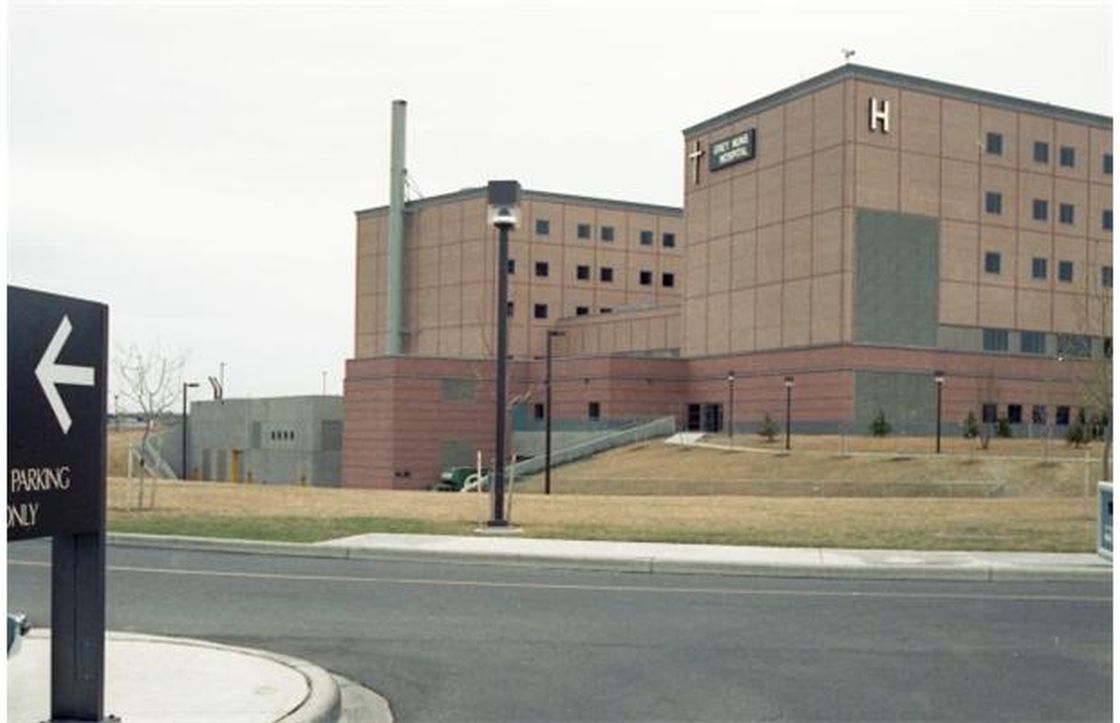EDMONTON – An Edmonton-based health agency has decided to open the province’s first two drop-off locations to safely abandon unwanted babies.
The so-called “Angel Cradles” will be established at Grey Nuns Hospital in Mill Woods and Misericordia Hospital in the west end. Covenant Health, the Catholic-based organization that runs the hospitals, will make an official announcement Monday morning.
“It is hoped the Angel Cradles will prevent tragic outcomes for newborns, as have been previously witnessed in Edmonton,” a statement from the agency said Friday. “Many support services are available to pregnant women, and new parents who are not sure they can keep and care for their baby, the Angel Cradle is a last-resort option. The safe haven will ensure the baby ends up in caring hands.”
A spokesperson for Covenant Health was not available to provide details Friday; however, it’s known the agency has been weighing the idea of a newborn drop-off ever since the country’s first one was opened in May 2010 at St. Paul’s Hospital in Vancouver.
“If we can prevent even one person, one infant, from an untimely and tragic death … that, I think, is consistent with who we are in terms of our values, our mission, our history,” Gordon Self, Covenant Health’s vice-president of ethics, said in 2010.
The Vancouver site is located near the hospital’s emergency entrance, where a private alcove is marked by an angel sign. Parents can walk up to a small door and place a child into a bassinet on the other side. An alarm then goes off 30 seconds later to alert emergency room workers, allowing the parent time to walk away and maintain their anonymity.
The location is considered a safe haven, meaning police have agreed not to arrest anyone using the drop-off.
A spokesman for St. Paul’s in Vancouver said the site has been used just once in the three years it has been open. A two-day old baby was left at the hospital in July 2010, after which the infant became the responsibility of B.C.’s Ministry of Children and Family Development.
Alberta has seen a handful of cases in recent years of infants being killed or abandoned by their mothers.
One of the most high-profile cases is currently being heard in a Calgary courtroom, where Meredith Borowiec, 31, is on trial for second-degree murder in the deaths of two newborns in 2008 and 2009. She was charged a year after police found a third newborn alive in a dumpster outside her townhouse in October 2010. Borowiec faces an attempted murder charge related to the surviving child.
Another case that made headlines involved Katrina Effert, a 19-year-old Wetaskiwin woman who strangled her newborn son shortly after giving birth in the basement of her parents’ home in 2005. She then tossed the body over the fence in the backyard.
Effert twice had convictions for second-degree murder overturned on appeal, before finally being found guilty of infanticide — when a mother causes the death of a baby because of a “disturbed mind” resulting from childbirth or nursing.
Safe haven drop-off locations are more common in the United States. Proponents say they offer protection for the most vulnerable, providing an important option for distressed and desperate moms who feel they can’t care for an infant.

However, the idea has remained controversial, with critics arguing that such facilities help legitimize the abandonment of children and make it OK for parents to dump their responsibilities on the government.
Some say there is no evidence the safe havens actually reduce newborn deaths or dangerous abandonments. They suggest it is unclear whether mothers who are distressed enough to abandon a child would be sufficiently clear-headed to find a safe haven.
Marliss Taylor, who runs a program for pregnant women at risk in inner-city Edmonton, said she is unsure of the need for the Angel Cradle sites.
She said some of her clients have had newborns apprehended by the government in the hospital, while others proactively make arrangements to have a child cared for by relatives, friends or the province.
“But in terms of just abandoning a child, I have never heard of it here,” said Taylor, director of the Streetworks program offered by Boyle Street Community Services.
However, she added it would be reasonable to assume some moms at least consider the idea, in part because of a lack of community supports for women living in poverty. As an example, she said the government does not provide social assistance to homeless pregnant women until their third trimester, making it hard to maintain a healthy pregnancy. Some women also face severe marginalization and discrimination, while others can be subject to a sudden onset of postpartum depression.
“What we have learned is that once moms are supported through their pregnancy, they are vastly more likely to be successful parents and keep that child,” Taylor said. “But what we have are a number of systems that make it very, very tough for these women to get support, so it’s no wonder women feel hopeless and helpless and may want to find a safe place to leave their child.”
She said while the drop-off sites at Misericordia and Grey Nuns provide a better option than having a baby killed or abandoned, moms who use the facilities may find it difficult to get their child back later.
At Vancouver’s site, moms who use the drop-off and then change their mind must go through a process of contacting the provincial government and meeting with a social worker.
Alberta Human Services Minister Dave Hancock could not be reached for comment Friday.





Comments